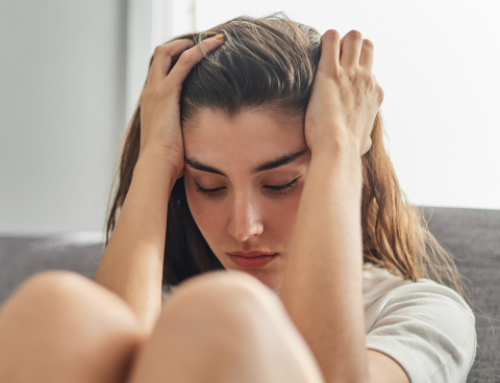Simone Biles Reminded Us That a Black Woman Doesn’t Have to Always Be Strong
Simone Biles has been impressed time and time again for performances for US Women’s gymnastics at the Olympics. Every time she does, the shared celebration is overpowering.
Yet, at the recent Tokyo Olympics, cheers came to a pause when the gymnastics superstar chose to put herself and her mental health first instead of pushing forward with a perfect narrative of strength.
Admitting to needing time or support for one’s mental health is often seen as admitting to weakness, a weakness that certain people aren’t expected to have. Athletes are symbols of strength as they push the limits of physical prowess. Black women, owning a history full of overcome hardships, are expected to take pride in their strength, including mental toughness.
That’s why there really was something to celebrate in the brave choice of Simone Biles at the Tokyo Olympics. She was a Black woman who’d made it to the top of a sports career by coming onto the Olympic Stage, and she admitted that she was only human. With mental health stigma a tough challenge for anyone to face, Biles’s message was a powerful one.
Mental Health Stigma for Black Women
While physical illness or injury commonly conjures up plenty of understanding and sympathy, there’s often a very different response when the issue is in the realm of mental health. Instead of being encouraged to “get well soon” and offered support with whatever they might need, someone facing a mental disorder is often told that it’s all in their head and advised to just get over it.
Within the Black community especially, vulnerability is looked down upon. To prepare their children for a very difficult world, one seen to be strictly against those of their skin tone, Black parents may refuse to show sympathy for hurt emotions or whatever else may be viewed as “mental weakness.” Black people of both genders are raised to be tough and to take pride in overcoming obstacles with valiance.
For women, this means being a “Strong Black Woman.”
What Is a Strong Black Woman?
A strong black woman is an ideal identity for many black females raised to be too tough for any of their problems to bother them. It is the culmination of praise given to all the positive role models of black womanhood that we hold up, from ancestors that survived the slave trade to those empowered women of today that have overcome systematic oppression to rise to greater positions in life. Seeing the success of other strong black women and attempting to live up to this identity can create a reluctance to acknowledge, accept, and address mental health concerns.
Feeling the pressure to be a Strong Black Woman leaves many women burdened by mental health stigma. They feel the pressure of this “positive stereotype,” which dictates that their success is in never succumbing to weakness, refusing to quit, and having the strength to overcome any struggles.
After living through trauma, one may want to cling to this identity as a way of making enduring hardships into something positive. Identifying oneself with strength, there’s no need to feel burdened by a traumatic past or present anymore, because “what doesn’t kill you only makes you stronger.” The problem is that this isn’t always true; life can really be hard and sometimes, it can really hurt.
It may mean that, for a moment, you aren’t the perfect example of a “strong black woman,” but weakness is a part of any honest look at mental health. Letting go of a perfect narrative crafted by the image of a “strong black woman,” we can also let go of some of the shame around mental health in our community, which is essential towards individuals getting the help they need.
How Simone Biles Helped to Shatter the “Strong Black Woman” Narrative
Looking at Simone Biles, there’s a lot of strength that we can see in the young woman. One of the world’s greatest gymnasts, she’s proven herself physically capable and mentally determined with all eyes on her at the Olympic Stage.
And, of course, it wasn’t easy for her to find herself wearing those gold medals around her neck, famous for achievements truly beyond the capabilities of the average person. She had struggles in her childhood, suffered sexual abuse, and has had to contend with her own mental health experiences.
It would be easy to sum her up as someone whose life wasn’t always easy but who stood strong in the face of it all. Time and time again, she did stand strong and prove that her struggles were not the end of her story. Yet, as with anyone, this is not the only side to her, and one of the most impressive things she did was not letting it be the only side to her that was seen.
Coming Public with Her Mental Health Struggles
When we want to be seen as strong and tough, we simply can’t allow our vulnerable side to be seen. Traumas are only presented as something we’ve beaten, not something that’s beaten us down. Any personal imperfections – including those related to mental health – are not claimed.
Yet Simone Biles has shown her vulnerability and spoken out about the truths of her mental health. From explaining her diagnosis of ADHD to speaking out on her depression and anxiety, Biles has broken down stigma with her public confessions. By not hiding the vulnerable realities of her mental health, she’s shown that it’s okay to not always be strong and that it’s okay to need help.
Standing Up For Herself and Her Mental Health
Simone Biles said, “We also have to focus on ourselves because at the end of the day, we’re human, too.” Despite her impressive feats as an Olympic athlete and despite any willpower and resilience she’s shown in overcoming her obstacles, she’s still human. And sometimes, humans need help.
When Biles needs help, she prioritizes her mental health. She’s worked with a psychologist, letting therapy be something positive in her life, instead of a source of shame.
She also took time for herself in the midst of the Tokyo Olympics, when pressure was high and she was in a place that really tested her mental health. Opening up that she was struggling with “the twisties,” Simone Biles chose to step back and withdraw from most of the competition events.
When the news first came out, many questioned her decision and its reasons while many others continued to cheer for her. In truth, there really is something to praise in Biles upholding her right to decide for herself what the right move is for herself and her mental health. She didn’t need to push past the struggle to prove herself capable and worthy. Her success doesn’t need to lie in unrelenting perseverance and strength.
Letting Go of the Idea That We Must Always Be Strong
There is no need for the success of any Black woman to lie in absolute strength. No one needs to let toughness get in the way of coming to terms with the true state of their mental health.
If you’re struggling, that’s okay. If you’re hurting too much to be strong, your vulnerability is acceptable. Just as Simone Biles reminds us, the mental health of us all, including Black women, matters. We don’t have to put it aside to appear strong. We can put ourselves first, take the breaks we need, and get help without being ashamed.
RECOMMENDED FOR YOU
MOST POPULAR
Simone Biles Reminded Us That a Black Woman Doesn’t Have to Always Be Strong
Simone Biles has been impressed time and time again for performances for US Women’s gymnastics at the Olympics. Every time she does, the shared celebration is overpowering.
Yet, at the recent Tokyo Olympics, cheers came to a pause when the gymnastics superstar chose to put herself and her mental health first instead of pushing forward with a perfect narrative of strength.
Admitting to needing time or support for one’s mental health is often seen as admitting to weakness, a weakness that certain people aren’t expected to have. Athletes are symbols of strength as they push the limits of physical prowess. Black women, owning a history full of overcome hardships, are expected to take pride in their strength, including mental toughness.
That’s why there really was something to celebrate in the brave choice of Simone Biles at the Tokyo Olympics. She was a Black woman who’d made it to the top of a sports career by coming onto the Olympic Stage, and she admitted that she was only human. With mental health stigma a tough challenge for anyone to face, Biles’s message was a powerful one.
Mental Health Stigma for Black Women
While physical illness or injury commonly conjures up plenty of understanding and sympathy, there’s often a very different response when the issue is in the realm of mental health. Instead of being encouraged to “get well soon” and offered support with whatever they might need, someone facing a mental disorder is often told that it’s all in their head and advised to just get over it.
Within the Black community especially, vulnerability is looked down upon. To prepare their children for a very difficult world, one seen to be strictly against those of their skin tone, Black parents may refuse to show sympathy for hurt emotions or whatever else may be viewed as “mental weakness.” Black people of both genders are raised to be tough and to take pride in overcoming obstacles with valiance.
For women, this means being a “Strong Black Woman.”
What Is a Strong Black Woman?
A strong black woman is an ideal identity for many black females raised to be too tough for any of their problems to bother them. It is the culmination of praise given to all the positive role models of black womanhood that we hold up, from ancestors that survived the slave trade to those empowered women of today that have overcome systematic oppression to rise to greater positions in life. Seeing the success of other strong black women and attempting to live up to this identity can create a reluctance to acknowledge, accept, and address mental health concerns.
Feeling the pressure to be a Strong Black Woman leaves many women burdened by mental health stigma. They feel the pressure of this “positive stereotype,” which dictates that their success is in never succumbing to weakness, refusing to quit, and having the strength to overcome any struggles.
After living through trauma, one may want to cling to this identity as a way of making enduring hardships into something positive. Identifying oneself with strength, there’s no need to feel burdened by a traumatic past or present anymore, because “what doesn’t kill you only makes you stronger.” The problem is that this isn’t always true; life can really be hard and sometimes, it can really hurt.
It may mean that, for a moment, you aren’t the perfect example of a “strong black woman,” but weakness is a part of any honest look at mental health. Letting go of a perfect narrative crafted by the image of a “strong black woman,” we can also let go of some of the shame around mental health in our community, which is essential towards individuals getting the help they need.
How Simone Biles Helped to Shatter the “Strong Black Woman” Narrative
Looking at Simone Biles, there’s a lot of strength that we can see in the young woman. One of the world’s greatest gymnasts, she’s proven herself physically capable and mentally determined with all eyes on her at the Olympic Stage.
And, of course, it wasn’t easy for her to find herself wearing those gold medals around her neck, famous for achievements truly beyond the capabilities of the average person. She had struggles in her childhood, suffered sexual abuse, and has had to contend with her own mental health experiences.
It would be easy to sum her up as someone whose life wasn’t always easy but who stood strong in the face of it all. Time and time again, she did stand strong and prove that her struggles were not the end of her story. Yet, as with anyone, this is not the only side to her, and one of the most impressive things she did was not letting it be the only side to her that was seen.
Coming Public with Her Mental Health Struggles
When we want to be seen as strong and tough, we simply can’t allow our vulnerable side to be seen. Traumas are only presented as something we’ve beaten, not something that’s beaten us down. Any personal imperfections – including those related to mental health – are not claimed.
Yet Simone Biles has shown her vulnerability and spoken out about the truths of her mental health. From explaining her diagnosis of ADHD to speaking out on her depression and anxiety, Biles has broken down stigma with her public confessions. By not hiding the vulnerable realities of her mental health, she’s shown that it’s okay to not always be strong and that it’s okay to need help.
Standing Up For Herself and Her Mental Health
Simone Biles said, “We also have to focus on ourselves because at the end of the day, we’re human, too.” Despite her impressive feats as an Olympic athlete and despite any willpower and resilience she’s shown in overcoming her obstacles, she’s still human. And sometimes, humans need help.
When Biles needs help, she prioritizes her mental health. She’s worked with a psychologist, letting therapy be something positive in her life, instead of a source of shame.
She also took time for herself in the midst of the Tokyo Olympics, when pressure was high and she was in a place that really tested her mental health. Opening up that she was struggling with “the twisties,” Simone Biles chose to step back and withdraw from most of the competition events.
When the news first came out, many questioned her decision and its reasons while many others continued to cheer for her. In truth, there really is something to praise in Biles upholding her right to decide for herself what the right move is for herself and her mental health. She didn’t need to push past the struggle to prove herself capable and worthy. Her success doesn’t need to lie in unrelenting perseverance and strength.
Letting Go of the Idea That We Must Always Be Strong
There is no need for the success of any Black woman to lie in absolute strength. No one needs to let toughness get in the way of coming to terms with the true state of their mental health.
If you’re struggling, that’s okay. If you’re hurting too much to be strong, your vulnerability is acceptable. Just as Simone Biles reminds us, the mental health of us all, including Black women, matters. We don’t have to put it aside to appear strong. We can put ourselves first, take the breaks we need, and get help without being ashamed.











